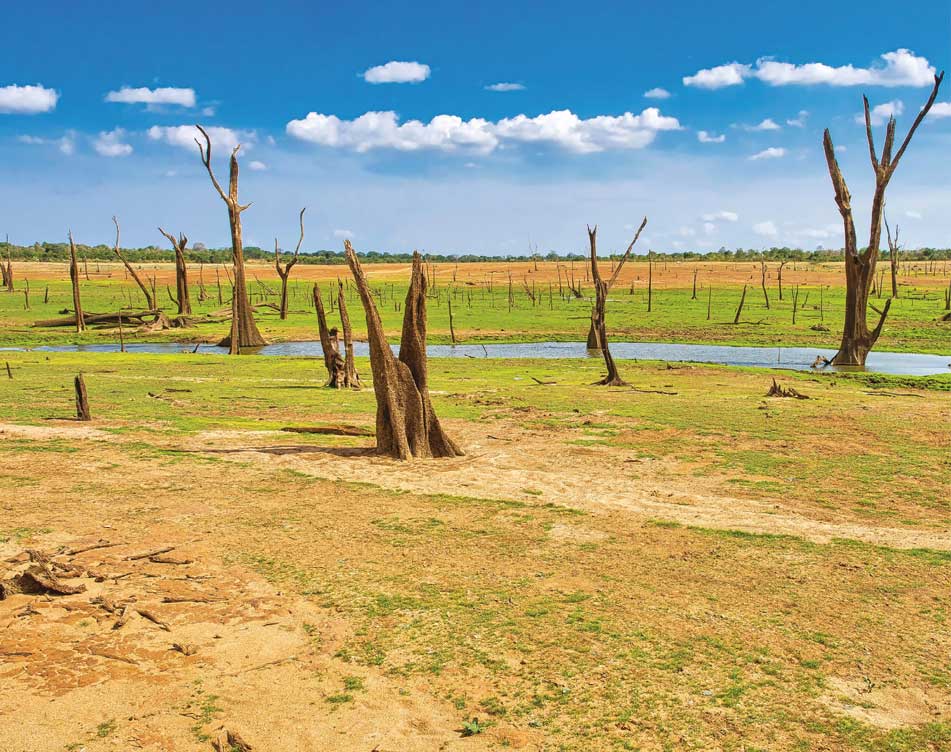CONSERVATION MODELS
Time to Build Back Better
Dr. Eric Wikramanayake explains why conservation is a matter of great pride for Sri Lanka’s heritage
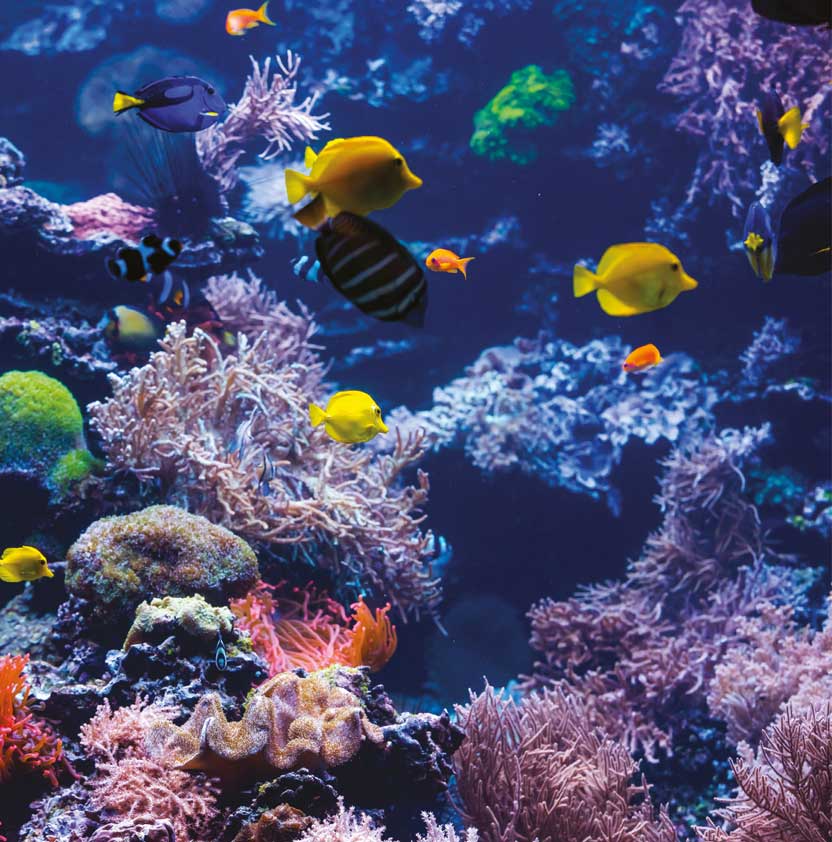
Many laws and regulations in the Fauna and Flora Protection Ordinance cover wetlands in areas protected under the Department of Wildlife Conservation; and the Forest Ordinance covers mangroves and other coastal wetlands,” notes Dr. Eric Wikramanayake as he outlines Sri Lanka’s conservation laws.
He is the Chairperson and Director of Environmental Foundation (EFL), and Director of Wildlife and Wetlands of World Wide Fund for Nature, Hong Kong (WWF-Hong Kong).
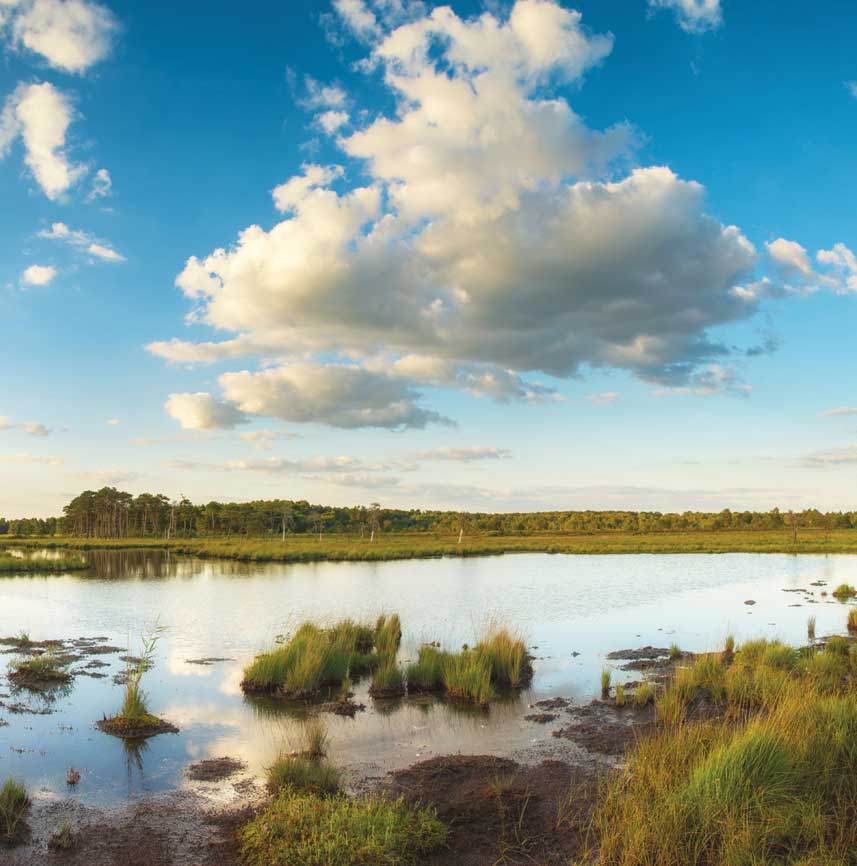
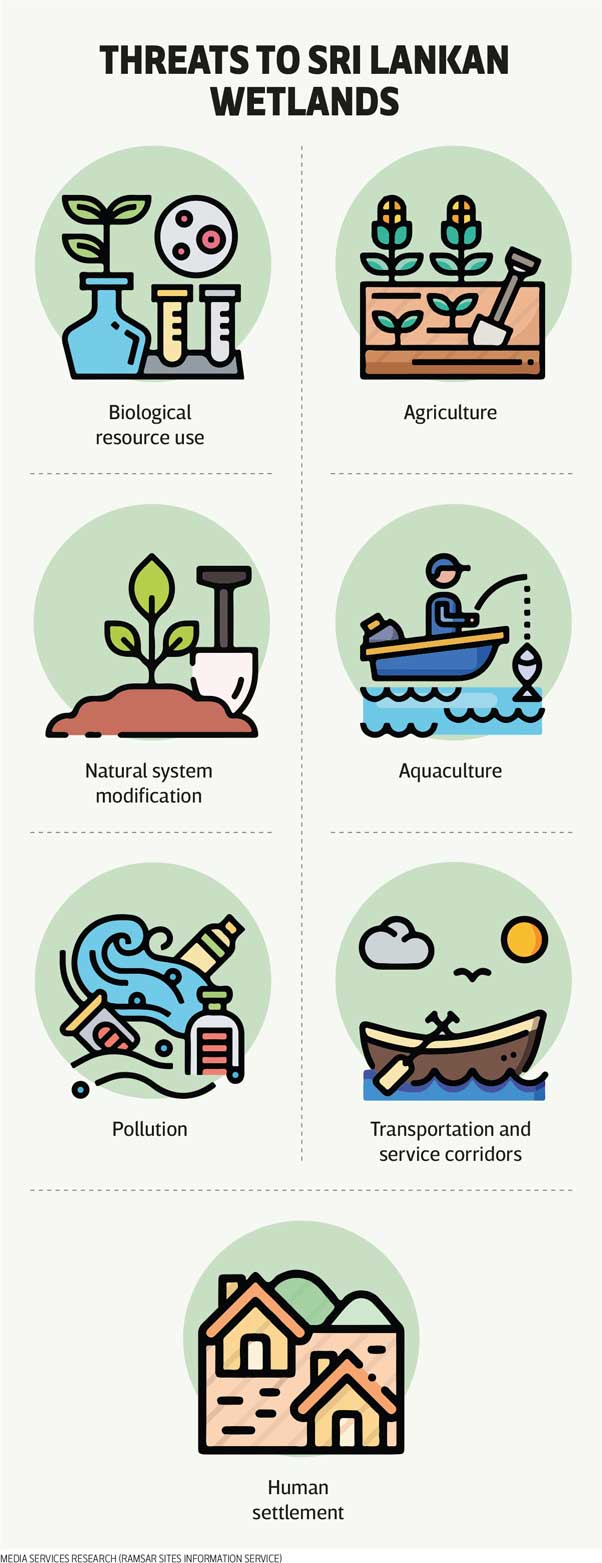 Wikramanayake explains that the National Environmental Act of 1980 protects many other wetlands – including those declared ‘Environmental Protection Areas’ – while the Fisheries and Aquatic Resources Act, and Coast Conservation and Coastal Resources Management Act, are the other laws.”
Wikramanayake explains that the National Environmental Act of 1980 protects many other wetlands – including those declared ‘Environmental Protection Areas’ – while the Fisheries and Aquatic Resources Act, and Coast Conservation and Coastal Resources Management Act, are the other laws.”
“Wetlands are easy targets for conversion to agricultural areas, prawn farms, salt pans and so on, because of their high natural productivity and water availability,” Wikramanayake reveals, explaining that “most of our natural wetlands have been converted.”
Many are still being encroached on and filled for building or considered dumping grounds for waste with even protected wetlands being vulnerable. Given this, he stresses that “we need better implementation of laws and regulations to protect the remaining wetlands.”
The loss of habitats is widespread in Sri Lanka and Wikramanayake notes that it’s most pronounced in the Wet Zone where the nation’s most important biodiversity is: “These are species that live only in this region of Sri Lanka and nowhere else on Earth.”
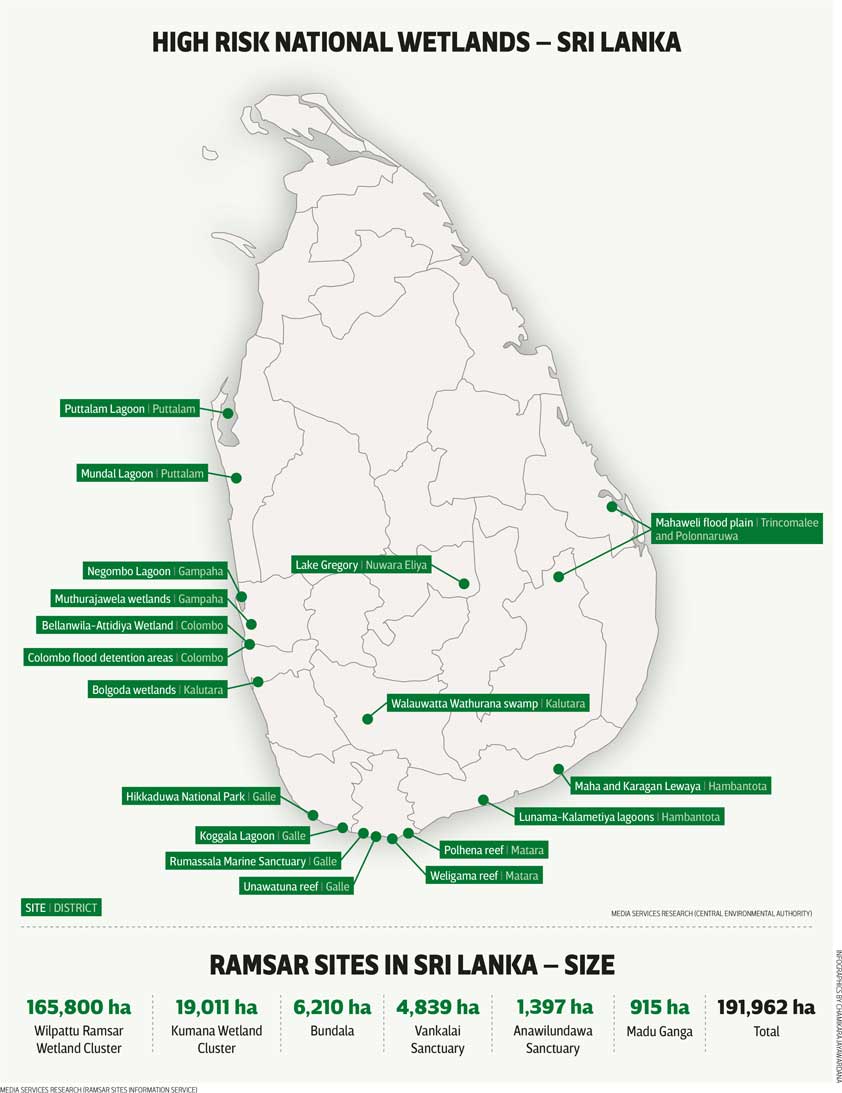 This includes many endemic fish, crabs and other wetland species, as well as species found only in the rainforests in the southwest of the island. “These species evolved over hundreds of thousands of years but are being extirpated in a matter of a few years,” he states.
This includes many endemic fish, crabs and other wetland species, as well as species found only in the rainforests in the southwest of the island. “These species evolved over hundreds of thousands of years but are being extirpated in a matter of a few years,” he states.
Wikramanayake stresses: “We have an obligation to protect and conserve these species as a matter of pride in our natural heritage. This requires a collective effort from the nation.”
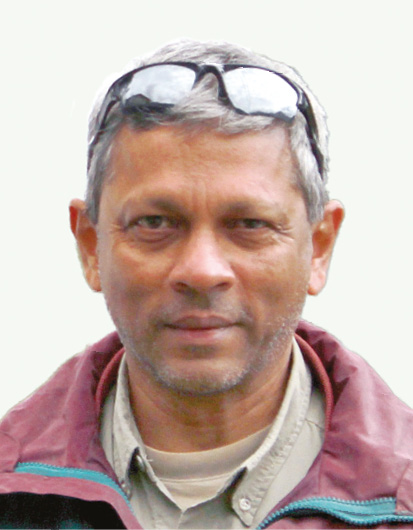 In his view, sustainable activities offer great opportunities for businesses. “At WWF-Hong Kong, we have a pilot programme called Bankable Nature Solutions, which promotes profit making business models with positive conservation outcomes,” he explains.
In his view, sustainable activities offer great opportunities for businesses. “At WWF-Hong Kong, we have a pilot programme called Bankable Nature Solutions, which promotes profit making business models with positive conservation outcomes,” he explains.
As Wikramanayake details, some of these ideas can be incubated through funds from the Dutch Fund for Climate and Development (DFCD). The aim is to mobilise private sector investment in conservation through projects that will build more sustainable climate resilient ecosystems that benefit nature, people and economies.
“The business sector depends on ecosystems for economic sustainability so businesses should invest in ensuring environmental sustainability,” he urges.
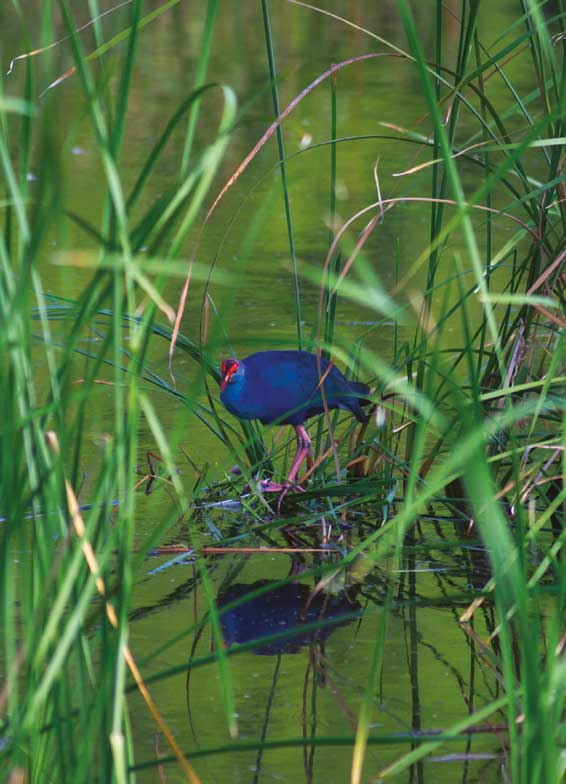
Wikramanayake believes this obligation should go beyond CSR handouts and be part of the corporate DNA: “The business and conservation sectors should work together to ensure we have a healthy planet to live in. It’s an obligation all of us have.” To this end, EFL – which recently celebrated its 40th anniversary – has an MOU with WWF-Hong Kong to design and implement such projects in Sri Lanka so he encourages the business community to reach out to the organisation to develop these business models.
“A recent Intergovernmental Panel on Climate Change (IPCC) report paints a scary picture of the future, should we fail to adopt sustainable practices and treat our environment better,” he notes.
In summing up, Wikramanayake says: “It is nature that will protect us – and scientific evidence supports this. We have to build back better with nature but also protect what we’ve been left with.”
